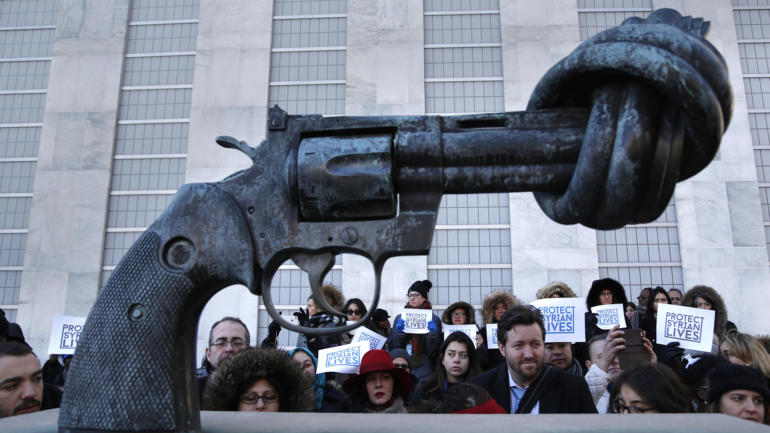It’s International Day of Non-Violence. The U.N. event honors the birthday of Mahatma Gandhi, the leader of India’s independence movement. Gandhi pioneered the philosophy of non-violent resistance and inspired generations of leaders.
But as CGTN’s Gerald Tan examines, many have paid the ultimate price for their beliefs.
Mahatma Gandhi once said that non-violence is the mightiest weapon of destruction devised by the ingenuity of man. But his path of peaceful resistance came to a violent end.
History is filled with activists who championed their cause through non-violent means but were ultimately assassinated.
Martin Luther King, Jr is remembered as one of the most influential leaders of the U.S. civil rights movement. In 1968, a lone assassin shot and killed the Nobel Peace Laureate as he was about to lead a protest march.
Turkish-Armenian journalist Hrant Dink was an advocate for minority rights in Turkey. He was murdered in 2007, as he stood trial charged with “denigrating Turkishness” for writing about the Armenian genocide.
Berta Caceres faced multiple death threats before her killing in 2016. The Honduran environmentalist and Goldman Prize winner had been battling against the construction of a hydroelectric dam on indigenous land.
And last year, Brazilians mourned the death of politician Marielle Franco. A black, gay feminist, she was a fierce critic of police brutality and was killed execution style.
Mahatma Gandhi died fighting for what he believed in and is revered as the father of a free India. On this International Day of Non-Violence, the U.N. is urging people to be inspired by Gandhi’s philosophy and to choose peace in the quest for change.
 CGTN America
CGTN America
 United Nations staff and other supporters assemble on U.N. headquarters grounds, around a sculpture entitled “Non-Violence”, to show their solidarity with the people of Aleppo, Syria, on Thursday, Dec. 15, 2016. (AP Photo/Seth Wenig)
United Nations staff and other supporters assemble on U.N. headquarters grounds, around a sculpture entitled “Non-Violence”, to show their solidarity with the people of Aleppo, Syria, on Thursday, Dec. 15, 2016. (AP Photo/Seth Wenig)
